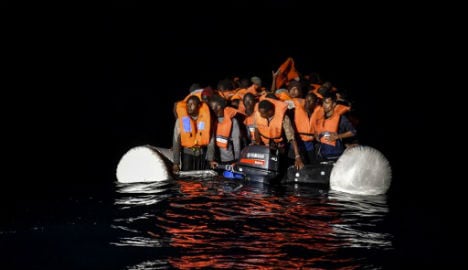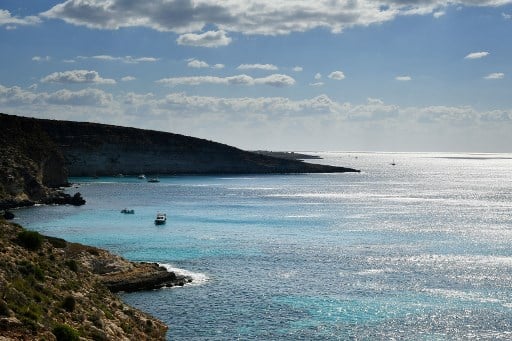LIBYA
Ten bodies found in dinghies off Libya: Italian coastguard
Ten bodies were recovered on Saturday from a rubber dinghy off the Libyan coast, the Italian coastguard said, adding that 2,200 other migrants were rescued during the day.
Published: 5 November 2016 20:56 CET

Migrants and refugees wait for further assistance from the Topaz Responder ship. Photo: Andreas Solaro/AFP
Sixteen rescue operations were conducted Saturday — almost twice as many as on Friday when 1,200 people were rescued.
An AFP correspondent aboard the Topaz Responder, a search and rescue ship chartered by Maltese NGO MOAS and the Italian Red Cross, saw several hundred people, including children, being rescued on Friday and Saturday.
Migrants shrouded in foil survival blankets crowded onto the deck of the vessel following the rescue efforts in which at least one baby was saved during the early hours of Saturday.
The Red Cross tweeted that 707 people were on board the vessel on Saturday. Meanwhile, the Libyan Red Crescent said it recovered the bodies of another six migrants on a beach west of Tripoli on Saturday, taking to 40 the number of drowned migrants found along the North African country's coast since Sunday.
People smugglers have exploited the chaos gripping Libya since the 2011 uprising that overthrew dictator Moamer Kadhafi to traffic migrants across the Mediterranean to Europe.
As many as 4,220 migrants have died trying to cross the Mediterranean so far this year, a higher number than the full-year totals for 2014, 2015 or any other year on record, according to the International Organization for
Migration (IOM).
Pope Francis on Saturday called the situation of migrants “shameful” and “a bankrupcy of humanity”.
“The Mediterranean has become a graveyard, and not just the Mediterranean,” he said, adding that there were also “many graveyards near walls, walls stained with the blood of innocents”.
Url copied to clipboard!


 Please whitelist us to continue reading.
Please whitelist us to continue reading.